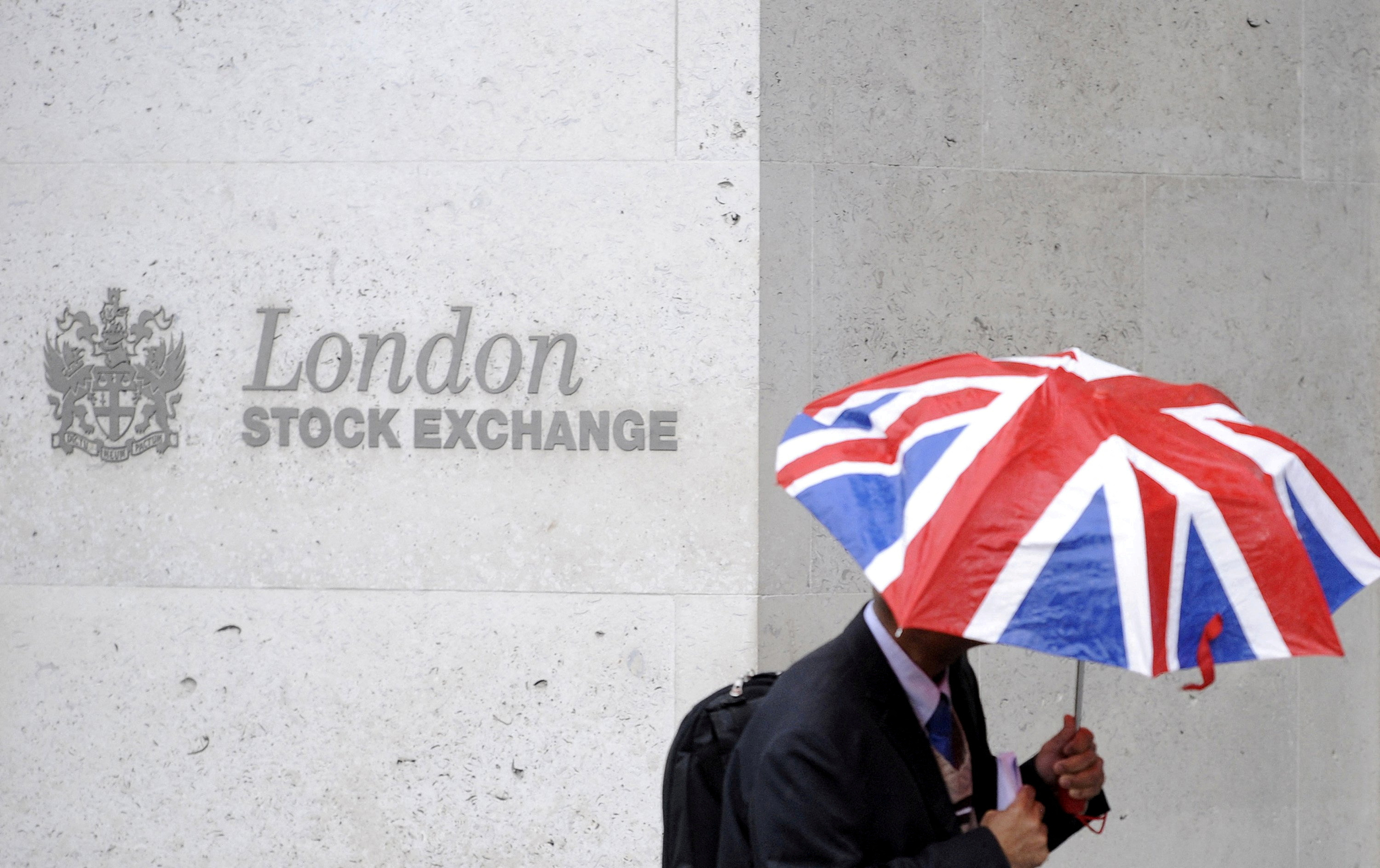Will London’s fightback as global financial player be a bang or whimper?
For such an important moment for the London stock market, the listing of CK Infrastructure was accompanied by relatively little fanfare in the wider City.
On August 19 the £14 billion Hong Kong-based owner of energy, utility and transportation assets, which is part of the sprawling empire of Li Ka-shing, one of Asia’s richest men, made its debut on the London exchange. The secondary listing did not involve a fundraising, making it a low-key affair, and the stock only rose by 1.6 per cent on its first day.
Yet it nevertheless made history as the first new listing by a company in the UK since the Financial Conduct Authority last month shook up the country’s listing rules in a revamp aimed at making London more attractive for businesses seeking to go public. One of the changes made by the regulator was the introduction of a market segment for non-UK businesses, dubbed the International Commercial Companies Secondary Listing category, of which CKI has become a member.

Andy Hunter, a senior executive at the company, said the FCA’s changes had “undoubtedly helped” the group with its London debut by making the listing process more straightforward. Bosses at the London exchange will be hoping that other companies follow suit and that the admission of CKI, which has its main listing in Hong Kong, will prove to be a turning point for the faltering British bourse.
At stake is the health of the UK’s capital markets, a key foundation of the country’s wider status as a global centre for financial services, which some believe is also under threat. Fears have grown in recent years that London is losing business to rival exchanges overseas, particularly New York and Amsterdam.
After a boom in 2021, when 126 companies raised £16.7 billion through initial public offerings on the British exchange, deal volumes slumped, with 45 transactions raising £1.6 billion in 2022 and 23 listings that raised £953 million last year, data from the bourse shows. There have been ten so far this year, raising £570 million, and Tulip Siddiq, the City minister, called CK Infrastructure’s admission a “strong vote of confidence in Britain’s capital markets”.
Even so, the decision by Arm, one of Britain’s most successful technology companies, to sell shares in New York last September in an IPO that valued the microchip designer at $52.3 billion was a big setback for London. Recent moves by several UK-quoted businesses, including Flutter Entertainment, the gambling group behind Paddy Power and Betfair, and CRH, the building materials supplier, to drop London as their main listing in favour of New York have dealt a further blow to the British market.

Investor antipathy towards the UK, caused by worries about the repercussions of Brexit and political turmoil under the previous Conservative government, is partly to blame, by pushing down on valuations in the London stock market in recent years, making listing on other exchanges more attractive.
By largely severing City firms’ access to the huge European Union market, the UK’s decision to leave the bloc also created more fundamental problems for the country’s financial services sector. Brexit forced banks, insurers and asset managers that had used London as their base for Europe to set up outposts within the EU to ensure they could continue to serve their clients there. While this has not led to an exodus from London, which had been feared eight years ago, there has nevertheless been a trickle of jobs to the Continent as well as the movement of capital as firms adapted to the new, fractured relationship between the UK and Europe.
“The sophisticated financial services that the City of London provides are global and footloose,” cautioned Lord Tyrie, the former Conservative MP. Tyrie rose to prominence as the chairman of the Commons Treasury committee between 2010 and 2017, when he regularly grilled bankers, regulators and ministers. “London has lost business as a consequence of Brexit and the last few years of political and financial policy uncertainty,” he said.
Rewriting the listing rules is just one of a series of initiatives by regulators, the new Labour government and the previous Tory administration to counter this decline. They include proposals for a UK Isa to boost the stock market by encouraging retail investors to buy British shares, and plans to roll back rules inherited from the EU that have been blamed for further harming UK equities by fuelling a slump in the volume of investment research published by stockbrokers on London-listed companies.
Another set of rules inherited from Brussels, which limited the bonuses that banks were allowed to pay senior staff, were abandoned by Britain in the autumn in an attempt to boost the international competitiveness of UK lenders, particularly compared with their peers on Wall Street.

“There’s no one silver bullet in terms of how to maintain London’s competitiveness and make this continue to be an attractive centre for financial services,” said Tiina Lee, who heads the UK operations of Citigroup, the American banking giant. She welcomed the steps already taken by regulators and ministers but added that it would require multiple measures “to really make a difference”, with unlocking capital in pension funds a key initiative.
Indeed, while Brexit caused international investors to shy away from the London stock market, changes in the pensions industry are also to blame for a longer-term stifling of demand for UK shares. Accounting rule changes for defined benefit schemes more than two decades ago have driven a sea change in the way pensions invest by pushing them out of shares and into bonds. As a result the aggregate allocation of domestic retirement funds to UK equities has fallen to 6 per cent from 53 per cent in 1997, according to the New Financial think tank.

Encouraging pension schemes to reverse this and increase their holdings of both listed UK equities and unlisted British companies such as start-ups was a focus for the last Tory government and now Labour. It forms part of broader reforms to overhaul the pension industry, both to improve investment returns for scheme members and to bolster the domestic economy more broadly.
• Ed Warner: London Stock Exchange needs a fund management revitalisation
Even so, reversing the de-equitisation of the pension industry will take years. There is also the thorny issue of the extent to which the government can prod funds into changing their investment approach without clashing with the fiduciary duties of pension trustees to act in the best interests of scheme beneficiaries.
The recent listing rules revamp, which came into force on July 29 and were the biggest changes in more than three decades, is also not without critics.
The new rulebook puts greater onus on investors to do their own due diligence before putting their money at risk and has scrapped some investor protections, including requirements for companies to ask shareholders to approve related party transactions and some other large deals. This has raised concerns that the UK’s high standards of governance are being watered down in the pursuit of attracting flotations.

In June pension schemes led by Railpen, the £34 billion fund for railway workers, warned the FCA that the reforms would backfire by making “the UK less appealing as a destination for capital”, while in February the International Corporate Governance Network, which speaks for institutions managing $77 trillion, also criticised the regulator’s changes.
Furthermore, while the Treasury under Rachel Reeves, the new chancellor, has called financial services “a jewel in the crown of the UK economy”, there are suggestions the government might inadvertently harm the sector with its plan for the private equity industry. Ministers are consulting on a proposal to lift the tax levied on the profits enjoyed by private equity executives, fuelling speculation that some of the buyout world’s wealthiest players could move abroad to escape the clampdown, hurting the industry in Britain. Given private equity funds provide lucrative business for banks, law firms and other advisers, a shrinking of the buyout industry would dent the wider financial services sector.
Still, Sir John Kay, the economist who completed a review of UK equity markets for the government 12 years ago, questions whether ministers should be so focused on boosting the financial services.
A fellow at St John’s College at Oxford University, he watches many bright students go to work at banks and hedge funds, diverting talent away from corporations and start-ups that could go on to become the next homegrown success story like Arm.
“I don’t think there’s any great public interest in attracting more business to the City of London,” he said. “If there’s a critique of the City, it’s that it doesn’t do very much for the real UK economy and indeed attracts resources in terms of individual talent that might be better used in the real economy.”






